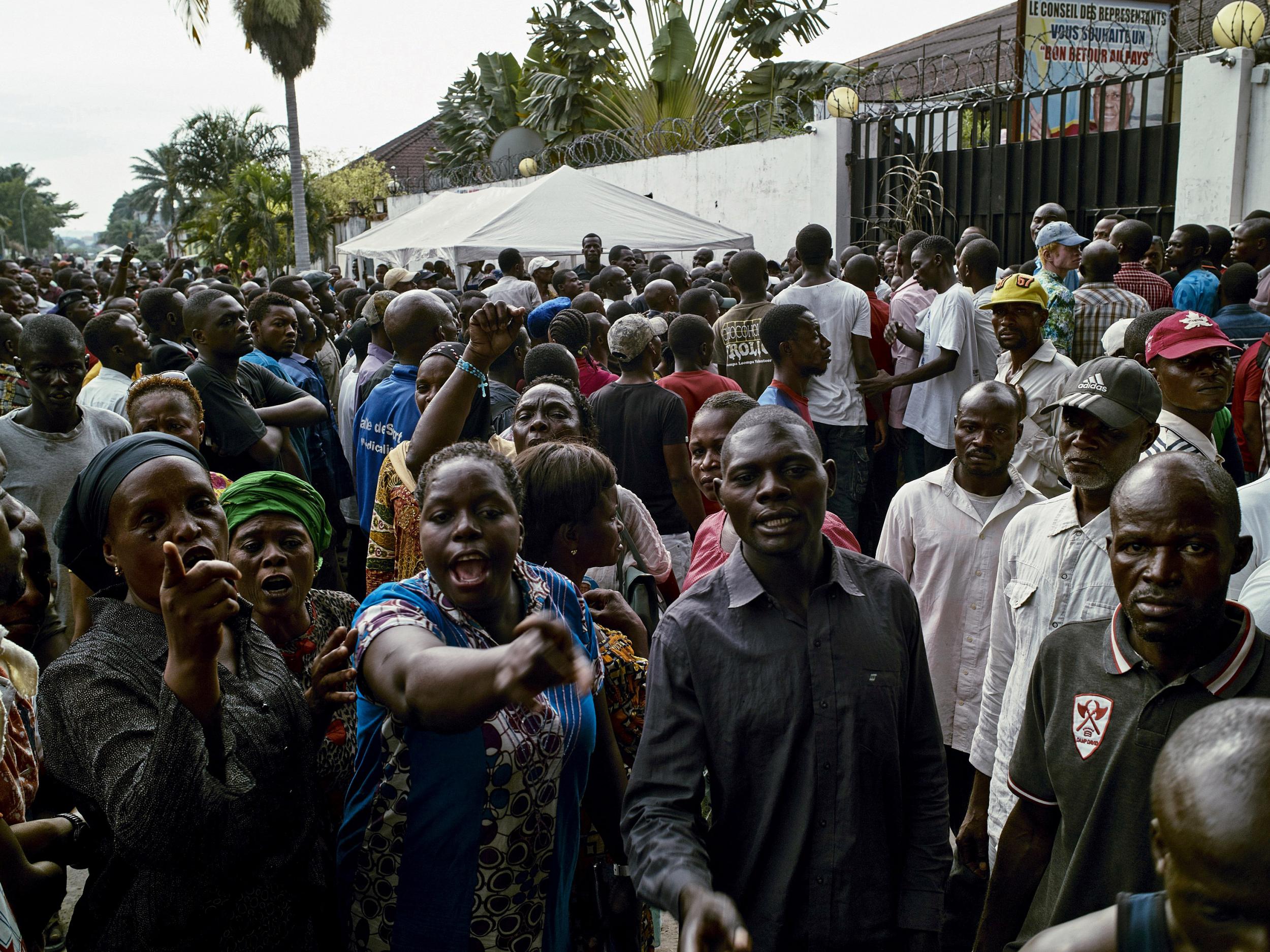Democratic Republic of Congo: Police fire shots to ward off protesters as President Joseph Kabila clings on to power
Leader's refusal to resign at end of mandate in December sparks wave of popular protests, killings and lawlessness

Your support helps us to tell the story
From reproductive rights to climate change to Big Tech, The Independent is on the ground when the story is developing. Whether it's investigating the financials of Elon Musk's pro-Trump PAC or producing our latest documentary, 'The A Word', which shines a light on the American women fighting for reproductive rights, we know how important it is to parse out the facts from the messaging.
At such a critical moment in US history, we need reporters on the ground. Your donation allows us to keep sending journalists to speak to both sides of the story.
The Independent is trusted by Americans across the entire political spectrum. And unlike many other quality news outlets, we choose not to lock Americans out of our reporting and analysis with paywalls. We believe quality journalism should be available to everyone, paid for by those who can afford it.
Your support makes all the difference.Congolese police fired shots and tear gas to ward off protesters after Catholic bishops pulled out of their mediation role in talks meant to pave the way for President Joseph Kabila to step down after an election.
Sporadic unrest broke out in Democratic Republic of Congo's capital Kinshasa when the bishops announced they would no longer host the talks between Kabila's allies and the opposition, after voicing frustration at their unwillingness to seek compromise.
The implementation of a political transition pact mediated by the bishops and signed on December 31 has stalled, raising the spectre of renewed violence in a vast central African country that has suffered a series of ruinous wars and rebellions.
Congo has never experienced a peaceful handover of power and millions have died, mostly from hunger and disease, in conflicts in east Congo since the late 1990s, when rebels ousted President Mobutu Sese Seko after three decades in power.
“We think that there's no longer anything to do,” Donatien Nshole, secretary general of CENCO, the bishops' organisation, told Reuters. “We have given all our time and all our energy.”
CENCO helped negotiate the December 31 deal aimed at averting a political crisis by ensuring an election this year to elect Kabila's successor.
Reacting to CENCO's decision, the opposition vowed to hold a nationwide protest on April 10.
“I call on the Congolese people to mobilise themselves for a big peaceful march throughout the republic and the diaspora (abroad),” the UDPS, the main party in the opposition coalition, said in a statement. “I call on our millions of supporters to resist the dictatorship taking root in our country.”
However, in a statement read on state-run television, Kabila's office said that talks would continue and that “the current impasse must in no way signify a definitive rupture of the dialogue”.
Kabila has ruled Congo since his father Laurent's assassination in 2001, and his critics accuse him of deliberately delaying elections in order to remain in power.
His supporters deny the charge, but Kabila's refusal to step down at the end of his mandate in late December was followed by a wave of popular protests, killings and lawlessness.
A militia uprising in central Congo's Kasai Central province that began in August has killed more than 400 people, according to the United Nations, and has worsened this year. Militiamen in Kasai decapitated about 40 police officers after an ambush on Friday, local officials said.
On Tuesday, the government said villagers in Kasai-Central province had found the bodies of two United Nations investigators and their Congolese interpreter who went missing this month in the area where fighting has flared.
Michael Sharp, a US citizen, and Zaida Catalan, a Swedish national, had been part of a group of experts monitoring a sanctions regime imposed on Congo by the UN Security Council when they disappeared. Congo's government has blamed unidentified “negative forces” for their disappearance.
Earlier on Tuesday a few demonstrators burned tyres at Kinshasa city intersections. Many shops remained closed and some schools called parents to collect their children, a Reuters witness said.
Congo's elections have been repeatedly delayed, ostensibly because of budgetary problems, igniting public anger. Security forces killed at least 40 people in protests during the week that Kabila's mandate ran out in December, but CENCO-mediated talks had enabled an agreement to be reached.
In January, though, the bishops warned that the deal was at risk of unravelling if politicians did not act quickly to reach compromises and carry it out.
Reuters
Join our commenting forum
Join thought-provoking conversations, follow other Independent readers and see their replies
Comments